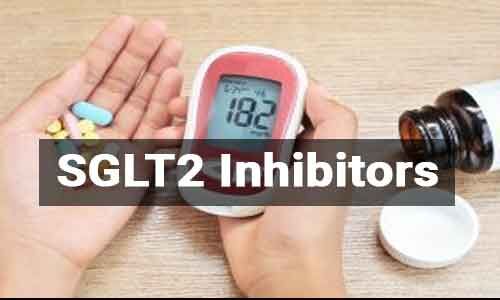- Home
- Medical news & Guidelines
- Anesthesiology
- Cardiology and CTVS
- Critical Care
- Dentistry
- Dermatology
- Diabetes and Endocrinology
- ENT
- Gastroenterology
- Medicine
- Nephrology
- Neurology
- Obstretics-Gynaecology
- Oncology
- Ophthalmology
- Orthopaedics
- Pediatrics-Neonatology
- Psychiatry
- Pulmonology
- Radiology
- Surgery
- Urology
- Laboratory Medicine
- Diet
- Nursing
- Paramedical
- Physiotherapy
- Health news
- Fact Check
- Bone Health Fact Check
- Brain Health Fact Check
- Cancer Related Fact Check
- Child Care Fact Check
- Dental and oral health fact check
- Diabetes and metabolic health fact check
- Diet and Nutrition Fact Check
- Eye and ENT Care Fact Check
- Fitness fact check
- Gut health fact check
- Heart health fact check
- Kidney health fact check
- Medical education fact check
- Men's health fact check
- Respiratory fact check
- Skin and hair care fact check
- Vaccine and Immunization fact check
- Women's health fact check
- AYUSH
- State News
- Andaman and Nicobar Islands
- Andhra Pradesh
- Arunachal Pradesh
- Assam
- Bihar
- Chandigarh
- Chattisgarh
- Dadra and Nagar Haveli
- Daman and Diu
- Delhi
- Goa
- Gujarat
- Haryana
- Himachal Pradesh
- Jammu & Kashmir
- Jharkhand
- Karnataka
- Kerala
- Ladakh
- Lakshadweep
- Madhya Pradesh
- Maharashtra
- Manipur
- Meghalaya
- Mizoram
- Nagaland
- Odisha
- Puducherry
- Punjab
- Rajasthan
- Sikkim
- Tamil Nadu
- Telangana
- Tripura
- Uttar Pradesh
- Uttrakhand
- West Bengal
- Medical Education
- Industry
Ertugliflozin reduces hospitalization risk due to heart failure in diabetes

Delhi: SGTL2 inhibitor ertugliflozin reduces heart failure hospitalization risk but does not confer a cardiovascular mortality benefit in type 2 diabetes (T2D) patients with cardiovascular disease (CVD). The findings from the VERTIS-CV trial were presented at the American Diabetes Association 2020 Virtual Scientific Sessions.
According to the study, Ertugliflozin, the late-comer to a new, important class of T2D drugs, fell short of its competitors in overall results of a cardiovascular (CV) outcomes trial. This is the fourth sodium-glucose cotransporter-2 (SGLT2) drug to report on CV outcomes (after empagliflozin, canagliflozin, and dapagliflozin).
Christopher P. Cannon, Brigham and Women's Hospital, Boston, Massachusetts, and colleagues assessed the CV safety of ertugliflozin in patients with type 2 diabetes mellitus (T2DM) and established atherosclerotic cardiovascular disease (ASCVD).
A total of 8,246 patients were randomized in the ratio 1:1:1 to receive either ertugliflozin 5 mg (n = 2,752), 15 mg (n = 2,747), or matching placebo (n = 2,747). The study included patients aged 40 and older with type 2 diabetes, defined as a hemoglobin A1C (HbA1c) 7.0% to 10.5%, and established atherosclerotic cardiovascular disease of the coronary, cerebral, and/or peripheral arterial systems.
The primary outcome was noninferiority with respect to major adverse cardiovascular events, including the time to cardiovascular death, nonfatal myocardial infarction, and nonfatal stroke.
Key findings of the study include:
- The primary outcome occurred in 11.9% of both placebo and ertugliflozin-treated patients, for a hazard ratio 0.97.
- The incidence of a major adverse cardiac event was 3.9 per 100 patient-years for patients given ertugliflozin at any dose and 4.0 per 100 patient-years for placebo patients.
- The results remained nonsignificant even when looking individually at the subgroups of patients who received either the 15 mg or 5 mg dose of ertugliflozin.
- A subgroup analysis of concomitant medication use revealed that patients on diuretics experienced a decreased risk of the composite of cardiovascular death or hospitalization for heart failure, with a hazard ratio of 0.74.
- The same pattern was not observed for patients who were not taking diuretics.
- Ertugliflozin therapy did appear to positively affect the risk of hospitalization for heart failure.
- Overall, 2.5% of patients taking ertugliflozin at any dose and 3.6% of placebo patients experienced hospitalization for heart failure, for a hazard ratio of 0.70.
- There were no differences among the groups with respect to the renal composite endpoint, but evaluation of temporal change in eGFR indicated a lower degree of decline overtime, with a least-square mean difference at 6 months relative to placebo of 3.0 mL/min/m2 for patients in the 5 mg ertugliflozin arm, and 3.05 mL/min/m2 for patients in the 15 mg ertugliflozin arm.
"Ertugliflozin is noninferior to placebo for reducing CV events in patients with T2DM and established CVD. Trends were noted for a beneficial effect on renal outcomes, although this was not statistically significant," concluded the authors.
The study, "Evaluation of Ertugliflozin Efficacy and Safety Cardiovascular Outcomes Trial - VERTIS CV," was presented at the American Diabetes Association 2020 Virtual Scientific Sessions.
Dr Kamal Kant Kohli-MBBS, DTCD- a chest specialist with more than 30 years of practice and a flair for writing clinical articles, Dr Kamal Kant Kohli joined Medical Dialogues as a Chief Editor of Medical News. Besides writing articles, as an editor, he proofreads and verifies all the medical content published on Medical Dialogues including those coming from journals, studies,medical conferences,guidelines etc. Email: drkohli@medicaldialogues.in. Contact no. 011-43720751


